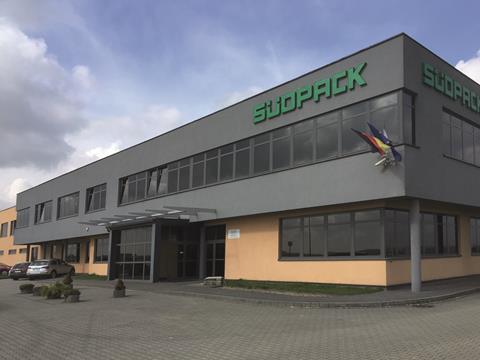SBTi commits to reduce harmful emissions in order to curb global warming
Film manufacturer Südpack has announced that its commitment to Science Based Targets initiative (SBTi) targets for reducing greenhouse gas emissions and improving its carbon footprint has been validated.

“Climate protection requires consistent action based on the latest findings in climate science. Which is why in its 2030 Sustainability Strategy, Südpack consolidated an extensive series of measures and initiatives to reduce harmful emissions in accordance with the Science Based Targets initiative (SBTi),” the company said in a press release.
More than 5,000 companies worldwide have signed up to SBTi, a joint initiative of CDP, UNGC, WRI and WWF to define targets to be able to limit global warming to 1.5°C.
As part of its wider sustainability strategy, Südpack has switched all of its German production sites to 100 per cent green electricity, part of which is produced by the company’s own PV systems.
The company is also making rapid progress is in transitioning its product portfolio to sustainable solutions. The focus is primarily on reducing material use and on developing recyclable monomaterials. In the future, special attention will also be paid to emissions when goods are purchased, for example by using granules made from renewable raw materials.
“To evaluate the environmental impact of a film or packaging concept over its entire life cycle, we developed an LCA tool in 2023 that also takes account of recycling options after the use phase,” said Valeska Haux, vice president strategic marketing & sustainability at Südpack.
The company said it is also concentrating on mechanical and chemical recycling in order to recycle existing plastics. “Our commitment to mechanical material management as well as the future-oriented recycling technology from Carboliq is, in our view, more than just an effective contribution to CO2 reduction. It is also an important impetus for a circular economy in the plastics and packaging industry as well as an essential building block in this necessary process of transformation,” Haux said.



